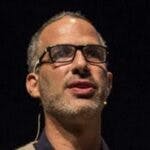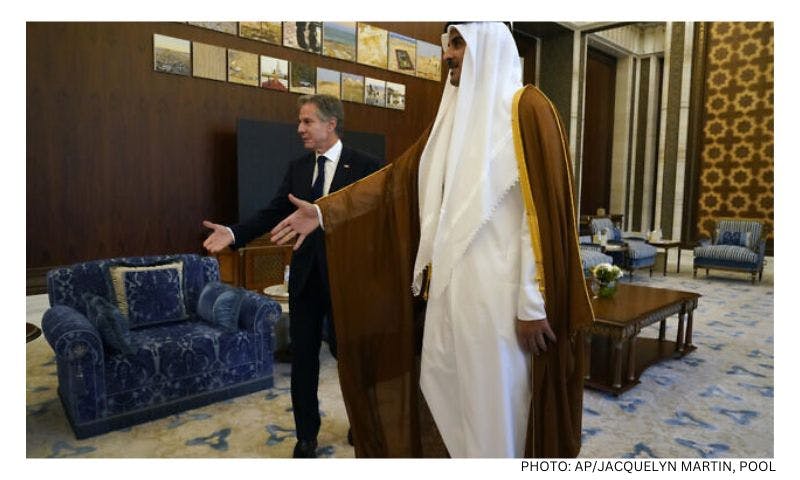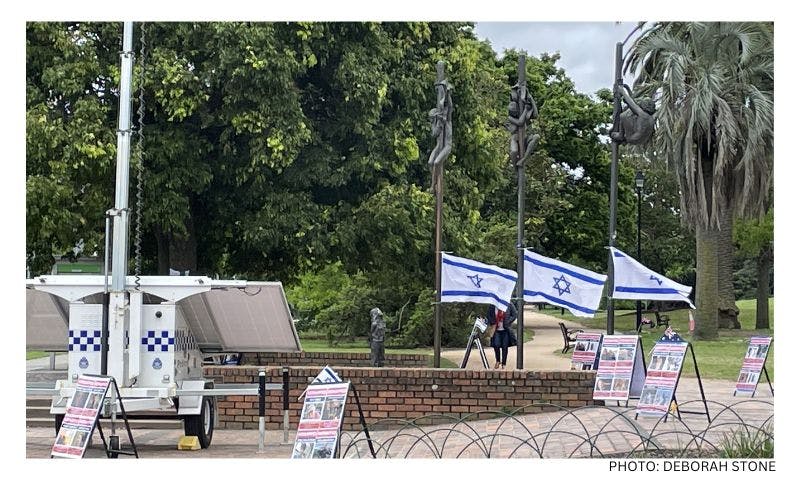Published: 6 February 2020
Last updated: 4 March 2024
Everybody laughed at the Russian accent. And the laughter was often contemptuous because the Russians refused to speak only Hebrew. I had very little Arabic, but I looked darker and I was a rebellious poet, which was even worse. The Russians and I were “the other”.
Today, most Russian Jews in Israel vote for the far Right, meaning Avigdor Lieberman’s party Yisrael Beiteinu. And no wonder after what they went through in their immigration to Israel, I think, sitting in Berlin remembering my own migration to Germany.
The Russians I met in the army were part of the immigration wave in the 1990s, when about a million Jews arrived in Israel from the former Soviet Union. Upon entering Israel, they were given the derogatory nickname "Russians", which made them seem less Jewish. They were not considered “real” Jews, rather mobsters whose women were prostitutes.
I’ve discovered that Russian immigrants to Germany also vote far Right, even though the party they favour, the AfD, is anti-immigration. Perhaps I should review my solidarity with Russian migrants?
The AfD claims it has grown because of the Russian vote. It estimates that about a third of its support comes from Russian-speaking voters, several million of whom have settled in Germany since the 1980s and now make up as much as 5% of the population.
Support for the party among Russian Germans is above the national average and while the AfD has a reputation for anti-Semitism, its voters also include a small but growing number of Russian German Jews.
What is going on here? I thought, we were similar, “the other”. In Israel, they had it slightly better than here. Before their arrival, the Ashkenazi elite praised the arrival of white Russian Jews with western culture. At least they were not the black, uneducated Jews who immigrated from Ethiopia or the Mizrahim from the Arab countries.
Lieberman’s story shows how radical the Russians can become. He emigrated from Moldova to Israel in 1978 and by the 1996 elections he was a key figure in the Likud party. His racist policies toward Palestinians and ultra-Orthodox Jews made it clear that this is how you get ahead in Israel.
Last year, Lieberman became a champion of secular Judaism, which prevented Benjamin Netanyahu and his coalition from winning the elections. However, none of Israel’s political commentators believe that Lieberman has become more democratic.
Today, Lieberman himself is experiencing racism. Most notably, in 2018 ,the famous Ashkenazi singer and actor Gidi Gov responded to then Defence Minister Lieberman over his call to boycott poet Jonathan Geffen for his support of the Palestinian teenager Ahed Tamimi, who is best known for appearances in images and videos in which she confronts Israeli soldiers: "… Lieberman, with a Russian accent, is a new immigrant, and he is the one who [is] calling Jonathan Geffen a bad Israeli.”
In other words, Lieberman was always “a Russian (Jew) with a Russian accent, a new immigrant who can’t tell us, the true Israelis [what to do],” said Gidi Gov. In short, Liebermann still belongs to a lower class of Jew.
Through my immigration to Germany, I understand the Russian Jews who sought to retain their language while studying Hebrew. I felt the same way about Hebrew while studying German. But here I don’t feel so close to the Russians anymore. They are more part of German society than I was part of Israeli society.
Is this why they vote for AfD? To belong more than other migrants? Some Arab Jews in Israel vote conservative and reject the “liberal” idea of democracy because it wasn’t inclusive for them in the first years of immigration to Israel.
Then again, in the case of Russian-Germans, the interests of the Russian immigrant community go beyond supporting a ‘xenophobic party’. For some it’s the conservative culture of the AfD, for others it’s the pro-Russian attitudes of some of its politicians.
Nevertheless, my connection with the Russians stays, even if they move to the far Right both in Israel and in Germany. I have learned about the way the Russians became “the other” in Israel. I’m still learning about it in Germany, with some of their experiences being like mine. And maybe the Russian community in Israel will change if Lieberman and his party reject the far-Right? Maybe this will happen in Germany, too?




